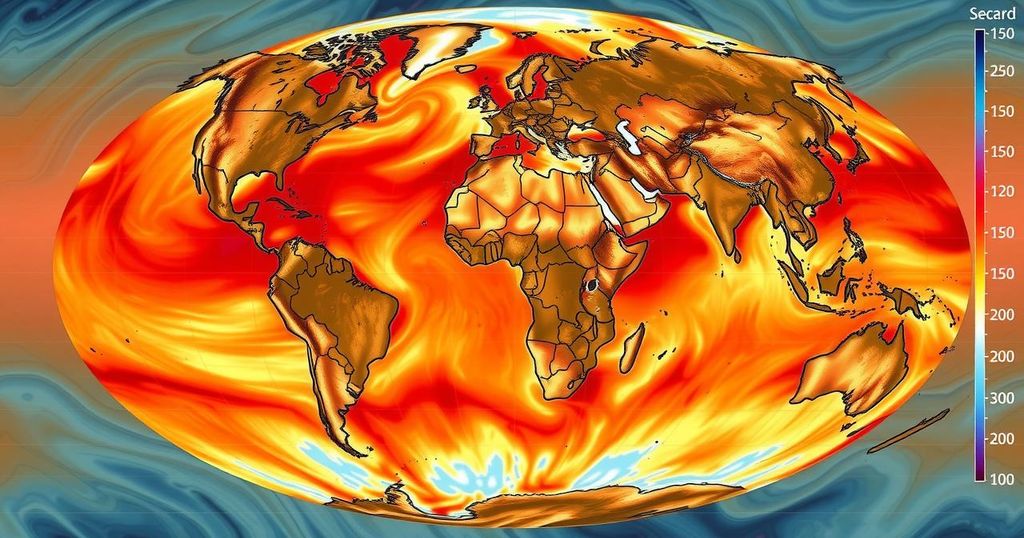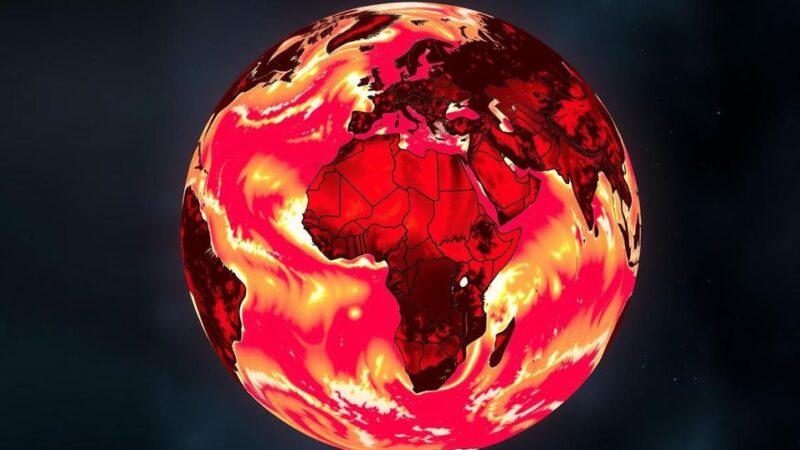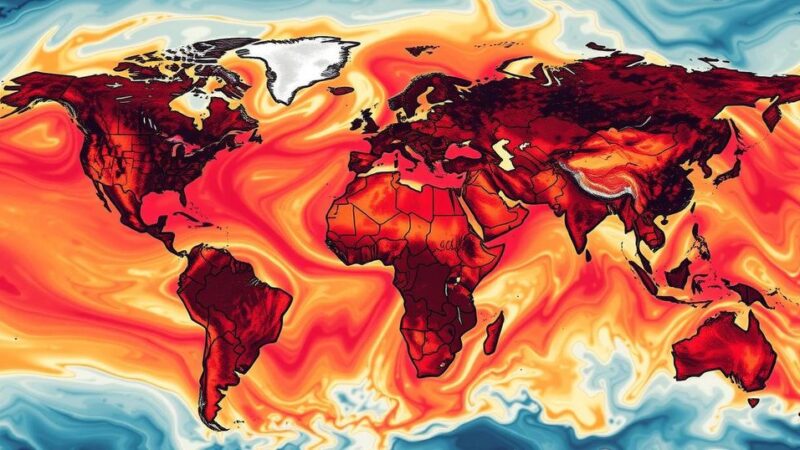The year 2024 is confirmed as the warmest globally on record since 1850, with temperatures exceeding 1.5 degrees Celsius above pre-industrial levels. This trend highlights the urgency for strong action against climate change, according to the Copernicus Climate Change Service (C3S). The findings reveal record-high atmospheric water vapor, significant heatwaves, and heavy rainfall events affecting populations worldwide.
The Copernicus Climate Change Service (C3S) has confirmed that the year 2024 stands as the warmest year on record globally since 1850, a finding that emphasizes the urgent need for coordinated global initiatives to combat climate change. Notably, 2024 is the first calendar year in which the average global temperature surpassed 1.5 degrees Celsius above pre-industrial levels, a critical threshold identified by the Paris Agreement.
The global average temperature in 2024 reached 15.1 degrees Celsius, which is 0.12 degrees higher than the previous record set in 2023. This temperature is estimated to be 1.6 degrees Celsius above pre-industrial levels. Furthermore, the average temperature over the two-year period (2023 and 2024) also exceeded the aforementioned threshold, underscoring rising global temperatures that exceed any modern human experience.
The Copernicus report highlighted a record high level of atmospheric water vapor in 2024, approximately 5% above the average from 1991 to 2020. This climatic phenomenon contributed to unprecedented heatwaves and extreme rainfall, adversely affecting millions of individuals worldwide.
Julien Nicolas, a climate scientist at C3S, indicated that the extreme weather patterns are predominantly a result of human-induced climate change, while additional factors such as the El Niño Southern Oscillation have also played a role in the observed temperature increases. Carlo Buontempo, C3S Director, accentuated the importance of immediate and resolute actions to influence future climate conditions positively.
The Copernicus Climate Change Service, funded by the European Union, regularly monitors climate data to provide insights into global temperature trends and climate change effects. Their reports serve as authoritative assessments of the state of Earth’s climate, illustrating the severity of climate issues and the pressing need for international collaboration. The Paris Agreement, signed by various countries, aims to mitigate climate change effects by keeping global warming well below two degrees Celsius while aspiring to limit it to 1.5 degrees Celsius above pre-industrial levels by the century’s end. Recent years, including 2023 and 2024, reflect significant shifts in climate, raising alarm among scientists and policymakers regarding the urgency of interventions to avert further global warming.
In summary, 2024 has been designated the warmest year on record, highlighting the critical necessity for immediate global action against climate change. The astonishing rise in average global temperatures and unprecedented atmospheric conditions are clear indicators of the impact of climate change, predominantly driven by human activities. Urgent measures are essential to align with the goals established in the Paris Agreement and to address the ongoing climate crises affecting millions around the world.
Original Source: www.socialnews.xyz







